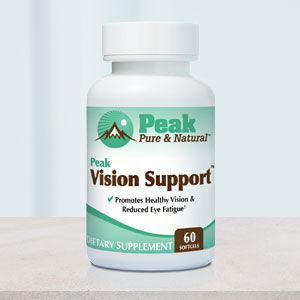Get Easy Health Digest™ in your inbox and don’t miss a thing when you subscribe today. Plus, get the free bonus report, Mother Nature’s Tips, Tricks and Remedies for Cholesterol, Blood Pressure & Blood Sugar as my way of saying welcome to the community!
Is too much screen time making you age faster?

Unless you go off the grid or join an Amish community, you’re interacting with electronics most of your day. You’re scrolling through Facebook on your phone. Paying bills on your computer. Binge-watching Fleabag on your tablet. Crashing out on your couch while Jimmy Kimmel cracks jokes on your TV.
Electronics are so ingrained in your day-to-day, that it’s hard to imagine life without them. How would you entertain yourself? What would you do while you wait in the doctor’s office? Or the DMV? Or the car repair shop?
Anyone who’s old enough to remember the days before electronic devices invaded every moment of our lives, knows exactly what you’d do…
Read a book, newspaper or magazine. Have a conversation. Sit quietly with your thoughts. Take a short snooze. In fact, people who remember a pre-digital world, often wonder if all our electronic use is really good for us…
Is it harming our mental health? Making us less social? Damaging our brains?
The answer is probably yes… at least to the last question. A new study shows that the blue light from electronics may damage brain cells. But that’s not all… it could be making you age faster too.
Blue light brings brain damage, eye damage and aging
A recent study from researchers at Oregon State University shows that the blue light emitted by electronic devices like computers, smartphones, and TVs could damage brain and retina cells.
Now, in case you don’t know, all light is a form of electromagnetic radiation… and blue light is no different. That glow coming off your computer screen, TV or cell phone is just visible radiation.
In this latest study, researchers examined how blue light impacted the common fruit fly. Some fruit flies were exposed to blue light for 12-hour periods daily and kept in the dark for 12-hours. Other fruit flies were kept in the dark the entire day. And guess what?
Flies exposed to blue light experienced damage to their retinal cells and brain cells. They also had impaired movement. They weren’t able to climb the walls of their enclosures as well. To top it all off, flies exposed to blue light lived shorter lives, which leads researchers to believe it might accelerate aging.
Do you know what else was fascinating?
Some of the fruit flies were mutants that don’t develop eyes. But they were still negatively impacted by blue light. That means it probably doesn’t need to enter your eyes to harm you.
Blocking blue light for better health
Here’s the question on the top of everyone’s mind right now:
Does this risk translate to humans?
It’s hard to say. But researchers chose to perform the experiment on fruit flies because they have similar cellular and developmental mechanisms as humans. And studies in humans have shown that blue light negatively affects circadian rhythm, which can contribute to insomnia. So, either way, there are benefits to reducing your exposure to blue light.
Often when I talk about reducing exposure, I mention blue light blocking glasses. And these may still be worth the investment if you work on the computer all day (I own a pair). But this study shows that blue light may cause harm even if it doesn’t make it to your eyes. Just being around blue light could be harming your cells. That means you may have to go one step further and do something hard — unplug more often.
Keep your phone in another room. Stay away from the TV and computer screen. Do something that gets you away from the glow of blue light for a while, like reading a book, going for a walk, writing in a journal, working in your yard… anything you enjoy, really, as long as it doesn’t involve a screen.
If you’re struggling to cut back on your screen time (digital devices are notoriously addictive, after all), check out the book “Digital Minimalism” by Cal Newport. Cal provides helpful tips for making your technology use more thoughtful and beneficial. He provides a concrete plan for reducing your use of technologies that are stealing your time without making your life better (which, honestly, is quite a few of them).
Editor’s note: While you’re doing all the right things to protect your brain as you age, make sure you don’t make the mistake 38 million Americans do every day — by taking a drug that robs them of an essential brain nutrient! Click here to discover the truth about the Cholesterol Super-Brain!
Sources:
- Daily exposure to blue light may accelerate aging, even if it doesn’t reach your eyes — MedicalXpress
- Daily blue-light exposure shortens lifespan and causes brain neurodegeneration in Drosophila — Aging and Mechanisms of Disease
- Blue light has a dark side — Harvard Health Publishing














